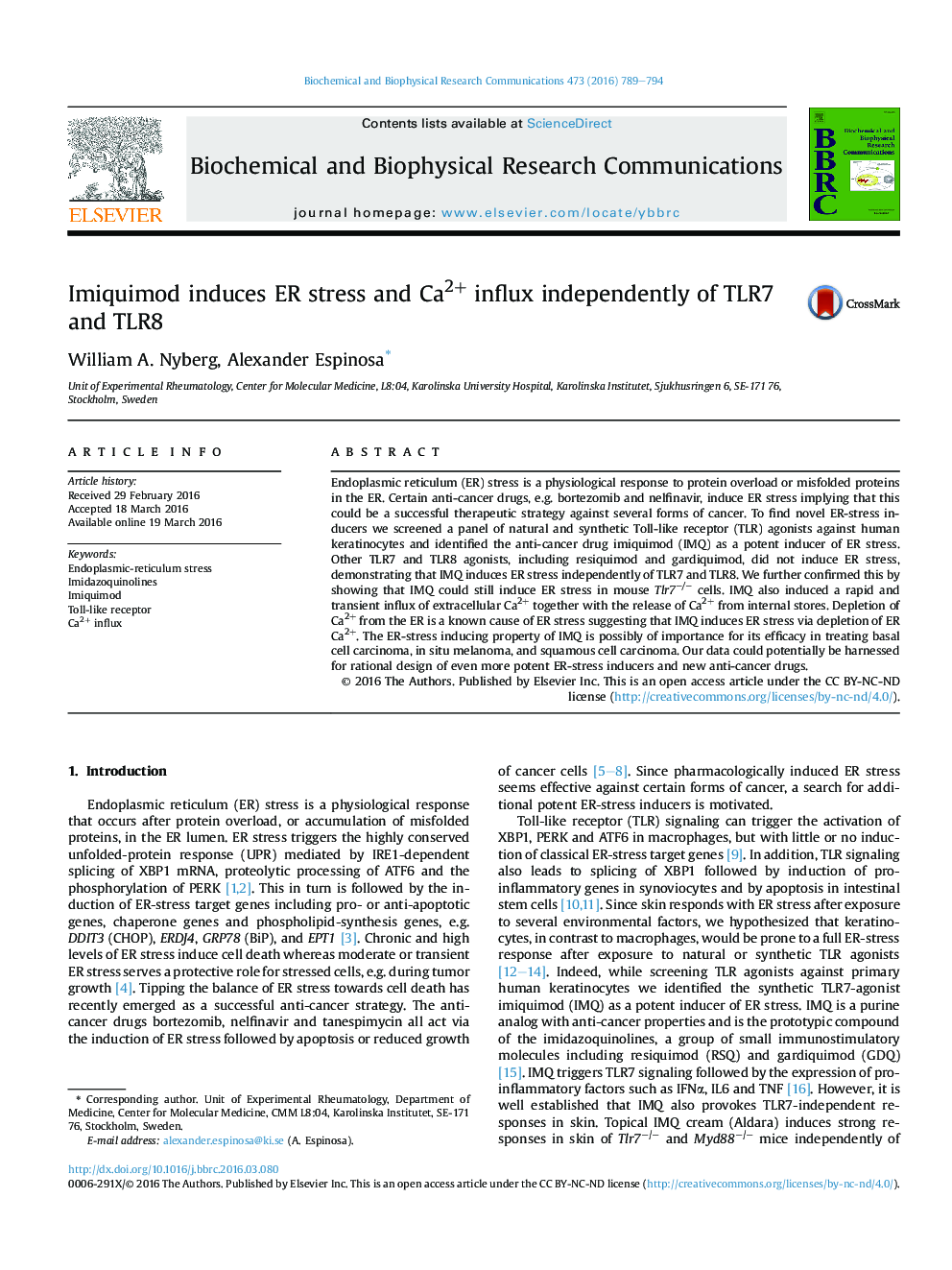| Article ID | Journal | Published Year | Pages | File Type |
|---|---|---|---|---|
| 10748405 | Biochemical and Biophysical Research Communications | 2016 | 6 Pages |
Abstract
Endoplasmic reticulum (ER) stress is a physiological response to protein overload or misfolded proteins in the ER. Certain anti-cancer drugs, e.g. bortezomib and nelfinavir, induce ER stress implying that this could be a successful therapeutic strategy against several forms of cancer. To find novel ER-stress inducers we screened a panel of natural and synthetic Toll-like receptor (TLR) agonists against human keratinocytes and identified the anti-cancer drug imiquimod (IMQ) as a potent inducer of ER stress. Other TLR7 and TLR8 agonists, including resiquimod and gardiquimod, did not induce ER stress, demonstrating that IMQ induces ER stress independently of TLR7 and TLR8. We further confirmed this by showing that IMQ could still induce ER stress in mouse Tlr7â/â cells. IMQ also induced a rapid and transient influx of extracellular Ca2+ together with the release of Ca2+ from internal stores. Depletion of Ca2+ from the ER is a known cause of ER stress suggesting that IMQ induces ER stress via depletion of ER Ca2+. The ER-stress inducing property of IMQ is possibly of importance for its efficacy in treating basal cell carcinoma, in situ melanoma, and squamous cell carcinoma. Our data could potentially be harnessed for rational design of even more potent ER-stress inducers and new anti-cancer drugs.
Related Topics
Life Sciences
Biochemistry, Genetics and Molecular Biology
Biochemistry
Authors
William A. Nyberg, Alexander Espinosa,
